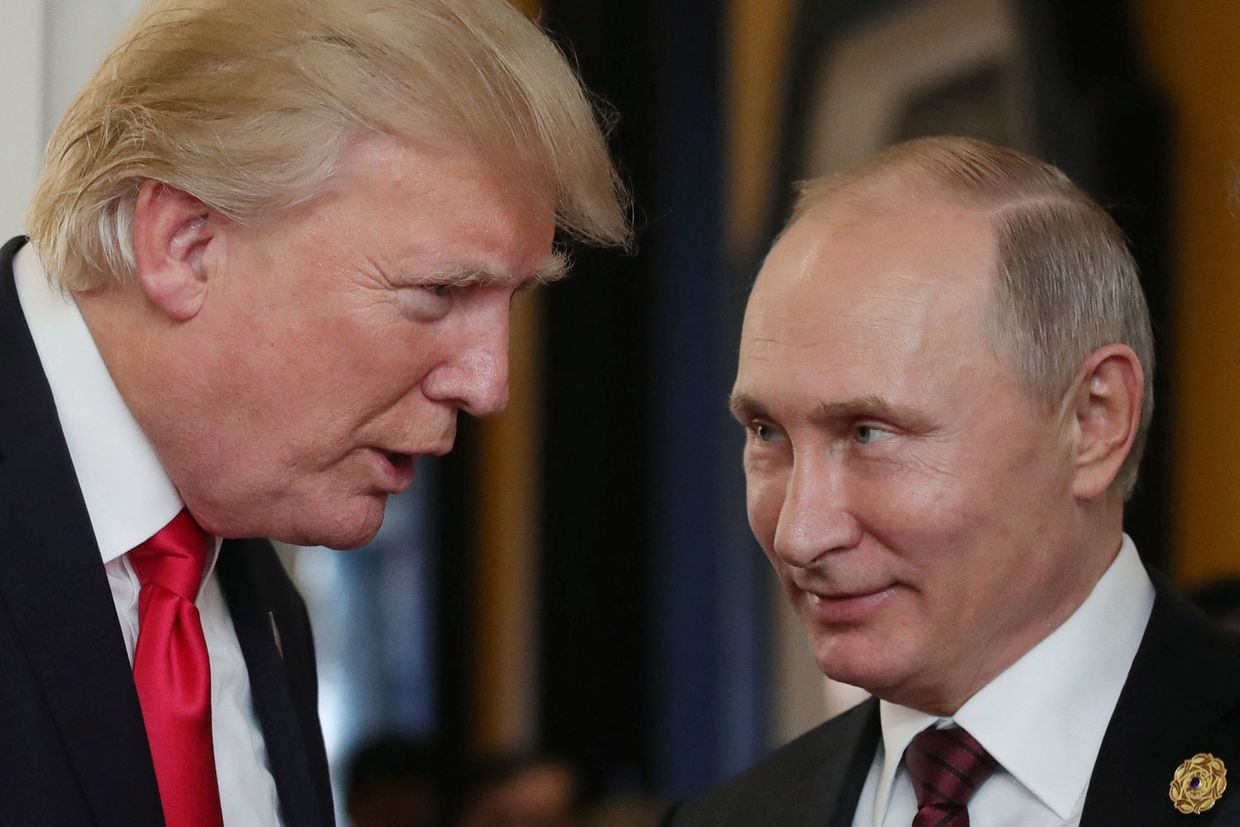Trump blames Zelensky, Biden for Russia's invasion of Ukraine

Republican presidential nominee Donald Trump blamed U.S. and Ukrainian leadership, rather than Russian President Vladimir Putin, for Russia's full-scale invasion of Ukraine during a podcast interview released on Oct. 17.
The comments come three weeks ahead of the U.S. presidential election, a race which may determine the future of Washington's military support for Ukraine.
U.S. President Joe Biden "instigated the war," Trump told podcast host Patrick Bet-David, saying he "largely blames" Biden for the invasion.
Trump also complained about President Volodymyr Zelensky and the amount of military aid Washington has provided to Kyiv.
"And that doesn't mean I don't want to help them because I feel very badly for those people. But (Zelensky) should never have let that war start," he said.
"That war's a loser."
Trump claimed Russia would not have launched the full-scale invasion in February 2022 if he had been president at the time.
"This should've been settled before it started," he said.
"It would've been so easy. If we had a president with half a brain, it would've been easy to settle."
Trump has made similar comments repeatedly during his campaign, insisting the war would not have happened on his watch while withholding concrete details on a plan to achieve peace now.
While Trump was quick to blame Zelensky and Biden for the war, he made no mention of Putin during the interview.
The omission is particularly glaring in light of recent claims that Trump held several secret phone conversations with Putin after leaving office in 2021. Trump has denied the allegations, leveled by journalist Bob Woodward in his new book "War," calling them "absolutely wrong."
Despite these denials, Trump on Oct. 15 declined to confirm whether or not he had spoken to Putin after leaving the White House.
"If I did, it's a smart thing... If I'm friendly with people, if I have a relationship with people, that's a good thing, not a bad thing, in terms of a country," he said.
The U.S. in September launched a sweeping crackdown against Russian election interference, alleging that the Kremlin spearheaded a propaganda campaign to reduce support for Ukraine and influence the November vote in favor of Trump.












